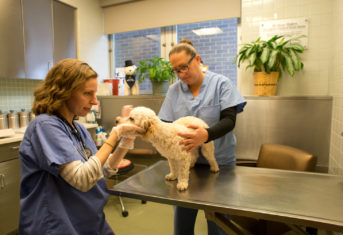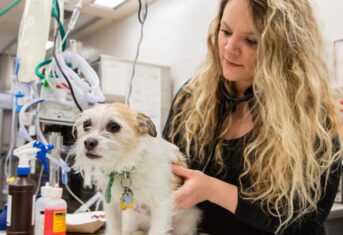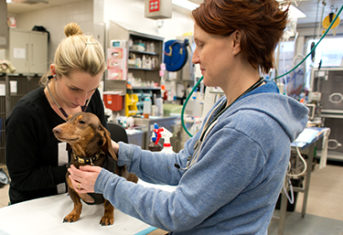Is there a flu season for dogs?

Is there a flu season for dogs?
I have been taking care of a new puppy patient who spends time in both New York City and Los Angeles. Since there is currently an outbreak of H3N2 canine influenza in LA, the puppy’s owner and I have to determine a preventive medicine plan for this pup. Below, I’ll discuss canine flu concerns that will be relevant to all dog owners.
Canine Flu Viruses: H3N2 and H3N8
H3N2, the virus causing the outbreak in LA, is an influenza virus evolved from an avian influenza virus. H3N8, the other influenza virus in dogs, evolved from an equine influenza virus. Neither of these viruses pose a threat to humans.
Unlike human influenza, canine influenza viruses do not have a seasonality. There is no “dog flu season.” Therefore, veterinarians issue guidance about canine influenza when there is an outbreak, like the current one in LA.
Asymptomatic Spread of Canine Influenza
Dogs are at risk of contracting canine influenza when they are in close proximity to other, virus-carrying dogs. Common sites of transmission include: doggie day care, boarding kennels and dog parks. One reason canine influenza is so tricky to manage is its ability to spread asymptomatically. Infected dogs can transmit the virus to other dogs for about 2 days before they show any clinical signs. This is similar to COVID-19, where infected humans can pass the COVID-19 virus to uninfected people days before signs of illness are evident. Dogs recovering from the flu remain infectious for 3 weeks or more after they exhibit clinical signs. Canine influenza viruses are just one cause of kennel cough in dogs.
Preventing the flu in your dog
If your dog frequently comes into contact with other dogs in kennels, dog parks and day care, ask your veterinarian if a flu vaccine is right for your dog. Canine influenza is a non-core vaccine, meaning a flu vaccine is not recommended for every dog. Instead, you and your veterinarian should make an assessment about your dog’s lifestyle and risk for contracting flu and determine if a flu vaccine makes sense.
In the case of the bicoastal puppy I mentioned in the introduction, the owners and I decided not to vaccinate the puppy against the flu. Here in NYC, the puppy is not going to a kennel, dog park or day care, and the puppy does not expect to return to LA anytime soon. However, if the puppy goes back to LA, then I will administer a bivalent flu vaccine against both the H3N8 and H3N2 influenza viruses for the best protection.































